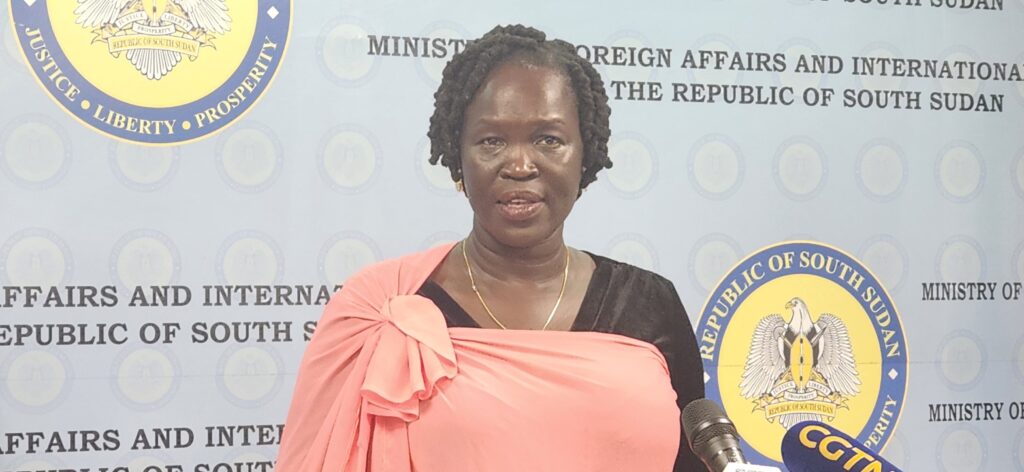The South Sudanese government has announced that it has begun implementing a coordinated drawdown of United Nations peacekeeping forces in the country, a process it said agreed with the UN mission.
The move follows what the UN has described as “severe financial constraints” affecting its global operations.
Speaking at a press briefing on Friday in the capital, Juba, foreign ministry spokesperson Apuk Ayuel Mayen said the “Downsizing Contingency Plan” was being managed through a joint committee with the UN Mission in South Sudan (UNMISS).
The reduction is expected to affect between 15% and 19% of the UN staff in the country, though detailed figures have not been made public.
The UN has been a key presence in South Sudan since it gained independence in 2011 and has played a crucial role in protecting civilians amid periods of intense conflict.
A Fragile Peace
This drawdown comes as the world’s youngest nation attempts to maintain a fragile peace following a brutal five-year civil war that ended in 2018.
The UN Security Council extended the UNMISS mandate for another year in May, maintaining a troop ceiling of 17,000 soldiers and 2,101 police personnel.
However, last month, the South Sudanese government made a formal demand for a much deeper 70% cut to international military contingents. It also called for the grounding of intelligence-gathering aircraft and the closure of several military bases and civilian protection sites.
The current, more modest, reduction appears to be the initial phase of a negotiated compromise.
Spokesperson Apuk confirmed that the joint committee had met on 25 November and that repatriation flights for departing peacekeepers began on 28 November.
Diplomatic Engagements
Ms Apuk also highlighted a month of diplomatic engagements, noting that senior officials had represented the country at international summits in Doha and Guinea to promote investment.
During a question-and-answer session, journalists raised concerns about several sensitive issues, including unpaid arrears affecting South Sudan’s foreign missions and the recent brief closure of its embassy in Kenya.
Apuk declined to comment on these matters, describing them as “internal administrative” issues.
On the topic of the disputed, oil-rich Abyei region, which is claimed by both Sudan and South Sudan, the spokesperson said a High-Level Committee had met a UN Special Envoy and was “awaiting developments from the Sudanese side.”
When asked about a UK court case related to South Sudan’s oil sector, she said it was a legal matter for the justice ministry.
Regarding new US immigration restrictions, she stated that South Sudan “respects the sovereign decisions” of the US but is focused on safeguarding the rights of its citizens abroad.
Concluding the briefing, Apuk reaffirmed the government’s commitment to “constructive diplomacy” and the implementation of the UN downsizing plan.
“The Government of the Republic of South Sudan remains committed to co-operating with UNMISS and strengthening partnerships with regional and international actors,” she said.




